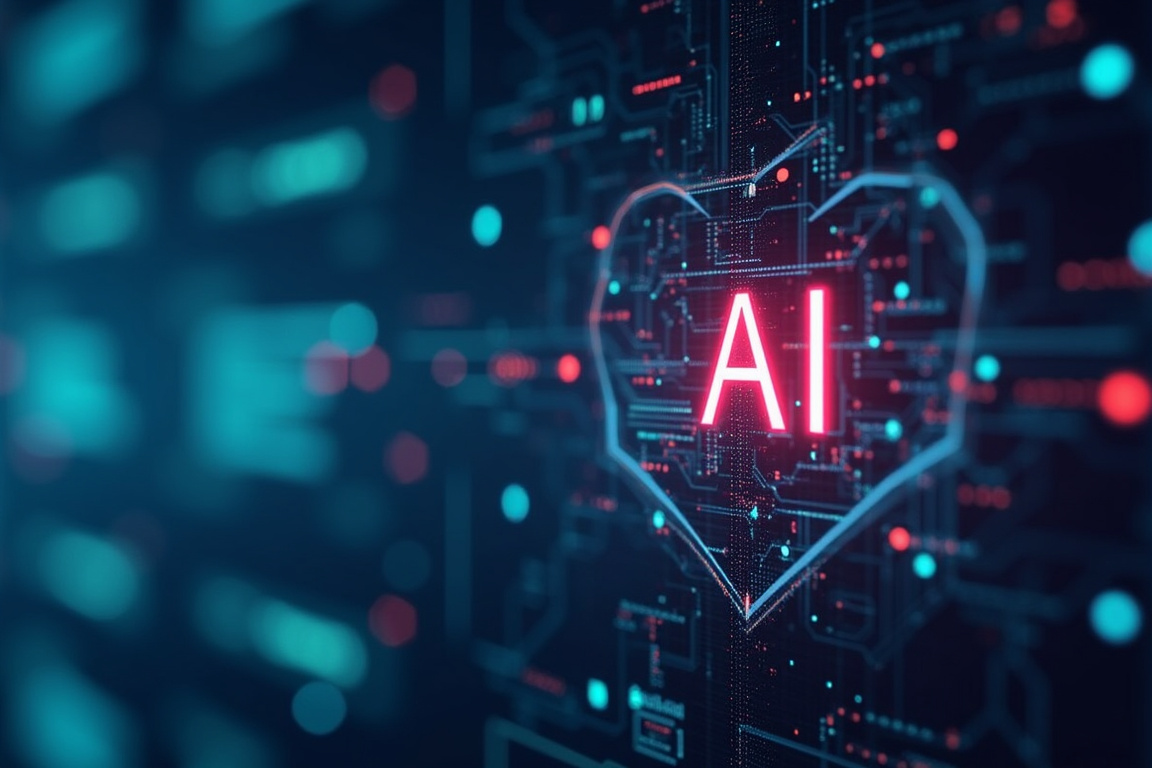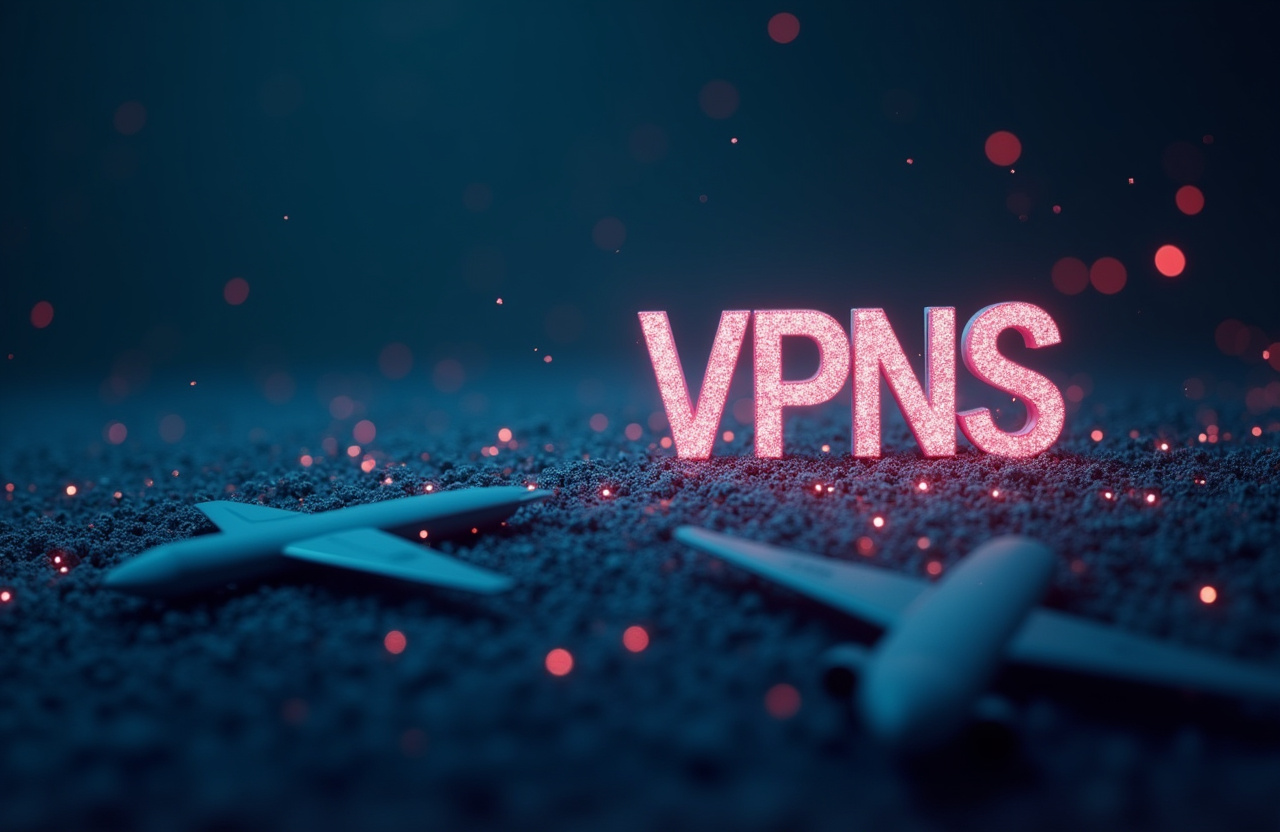VPNs for AI Labs: Securing Computational Research

Table of Contents
The Critical Need for AI Lab Security: Protecting Innovation and Data Integrity
The burgeoning field of Artificial Intelligence (AI) is rapidly transforming industries, driving innovation, and shaping the future of technology. At the epicenter of this technological revolution are AI laboratories, vibrant ecosystems where researchers, developers, and engineers collaborate to push the boundaries of what's possible. These labs are not merely hubs of innovation; they are also repositories of highly sensitive data, proprietary algorithms, and groundbreaking research.
Securing these AI labs is not simply a matter of best practice; it's a strategic imperative that safeguards intellectual property, fosters a culture of innovation, and ensures the long-term viability of these critical research environments. A robust security framework allows AI labs and researchers to have peace of mind knowing the data they are working on is safe, allowing them to be more creative and efficient. In an age where cyber threats are becoming increasingly sophisticated, AI labs must adopt proactive security measures to protect their valuable assets against malicious actors.
This includes internal and external threat actors who may seek to steal valuable data, disrupt research activities, or compromise the integrity of AI systems and services. The consequences of a successful cyberattack on an AI lab can be severe, ranging from financial losses and reputational damage to the erosion of competitive advantage and the compromise of sensitive personal data. The security measures implemented in these environments must keep pace with the ever-evolving threat landscape and incorporate cutting-edge technologies and best practices.
In this context, Virtual Private Networks (VPNs) emerge as a cornerstone of a comprehensive security strategy for AI labs. 'Computational research security' demands a multi-layered approach, and VPNs provide a critical layer of protection by creating a secure, encrypted connection for data transmission and access. VPNs mask IP addresses, making it difficult to track online activity, and encrypt data, rendering it unreadable to unauthorized parties.
This is particularly crucial for AI labs that often handle large amounts of sensitive data, including proprietary algorithms, research findings, and potentially personally identifiable information. By encrypting data traffic, VPNs prevent eavesdropping and data interception, thwarting attempts by malicious actors to steal valuable information or compromise the integrity of research data. With the increase in data usage and remote work, there is a corresponding increase in the number of data breaches, so it is important for computational research labs to take whatever measures they can to increase data security.
The protection of 'data integrity' is equally important, as any tampering or modification of research data can have serious consequences. By ensuring that data is transmitted securely and remains unaltered, VPNs help to maintain the integrity and reliability of research findings. Beyond encryption, VPNs offer a range of other security features that are particularly relevant to AI labs.
For example, many VPN solutions include firewalls, which act as a barrier against unauthorized access to internal networks, and intrusion detection systems, which monitor network traffic for suspicious activity. The use of an 'AI VPN' provides peace of mind to researchers and promotes the spread of innovation. One of the most significant contributions of VPNs to AI labs is the protection of 'intellectual property'.
The algorithms, models, and datasets developed by AI labs are often highly valuable and represent a significant competitive advantage. By controlling access to internal networks and ensuring that only authorized personnel can access sensitive code and data, VPNs help to safeguard these valuable assets. This is particularly important when collaborating with external partners or contractors, as it allows the lab to control the flow of information and prevent unauthorized access to intellectual property.
A secure VPN provides a safe and encrypted channel for researchers to share insights, data, and code with confidence, fostering collaboration and accelerating the pace of discovery. This sense of security encourages more open communication and knowledge sharing. In essence, a VPN infrastructure is a catalyst for 'VPN for innovation', creating a trusted environment where researchers can push the boundaries of AI without fear of compromising sensitive information or intellectual property.
Second section subtitle
The underlying technology of a VPN is crucial to understanding its role in securing AI labs. At its core, a VPN establishes an encrypted tunnel between a user's device (e.g., a researcher's workstation) and a remote server operated by the VPN provider. This tunnel encrypts all data transmitted between the device and the server, making it unreadable to anyone intercepting the traffic.
This is achieved through cryptographic protocols, such as AES (Advanced Encryption Standard), which encrypt the data using complex mathematical algorithms that are virtually impossible to crack without the correct decryption key. The most commonly used standard, AES-256, provides a 256-bit encryption key, which is considered military-grade and offers a very high level of security. The process begins when a user initiates a connection to the VPN server.
The VPN client on the user's device authenticates with the server and establishes a secure connection. Once the connection is established, all data traffic is routed through the encrypted tunnel. This means that the user's IP address is masked, and their online activity is hidden from their internet service provider (ISP) and other third parties.
The VPN server acts as an intermediary, forwarding the user's traffic to its destination on the internet. When data returns from the destination server, it is encrypted by the VPN server and transmitted back to the user's device through the secure tunnel. The VPN client on the user's device decrypts the data, making it readable for the user.
The encryption/decryption process is transparent to the user and takes place in the background, without affecting the user's browsing experience. Importantly, it is key to understand that if a hacker was to somehow gain your VPN IP address it is useless without the key to decrypt the information, rendering even a compromised IP as an asset. The choice of VPN protocol is also vital.
Common choices include OpenVPN, IKEv2/IPsec, and WireGuard, each offering a balance of security, speed, and compatibility. OpenVPN is known for its high security and is widely supported across different platforms. IKEv2/IPsec is known for its speed and stability, making it suitable for mobile devices.
WireGuard is a newer protocol that is gaining popularity due to its speed and efficiency. The VPN server network infrastructure is another important consideration. The location and number of servers can affect connection speeds and the ability to bypass geographical restrictions.
A VPN provider with a large and geographically diverse server network can offer better performance and flexibility. For AI labs, this can be particularly useful for accessing geographically restricted datasets or for collaborating with researchers in different countries. Furthermore, the physical security of the VPN servers is also important.
VPN providers should implement robust security measures to protect their servers from physical attacks and unauthorized access. These measures can include physical access controls, surveillance systems, and background checks for employees. When implementing VPNs, 'computational research security' should be a main goal.
It is important not to make a single security solution to save costs but to make a complex and hard to bypass solution, where each piece depends on the rest to work safely. A good VPN is not a full security suite and should be used in conjunction with other computer and data security solutions. The correct setup of a VPN can save valuable resources and time, creating an ideal environment to innovate.
Remote workers are becoming more common and a VPN helps to protect their work even when they are out of the office.
Third section subtitle
Selecting the right VPN solution for an AI lab is a critical decision that requires careful evaluation of various factors, ensuring that the chosen VPN aligns with the lab's specific security needs, budget, and technical infrastructure. The encryption strength is paramount. The VPN should support robust encryption protocols such as AES-256, which provides a very high level of security against data interception and decryption.
The choice of encryption protocol is so important to security that you should always default to the option with greater encryption. Some providers may offer a discount for a lower security protocol plan, this is not wise given the relative financial harm a data breach could cause. It is also beneficial if a VPN service uses multiple standards with different keys depending on what activities are completed on the network.
A strict no-logs policy is a fundamental requirement for AI labs handling sensitive data. The VPN provider should have a transparent and verifiable no-logs policy, ensuring that they do not collect or store any records of user activity, including browsing history, IP addresses, connection timestamps, and data transfers. Independent audits of the VPN provider's no-logs policy can provide added assurance.
An external cyber security expert should review the claim to ensure that it is not just lip service. The server network's size, location, and performance are also critical factors to consider. A large and geographically diverse server network allows users to connect to servers in different locations, which can be useful for accessing geographically restricted data, improving connection speeds, and bypassing censorship.
The VPN provider should have servers located in countries relevant to the AI lab's research activities and collaborations. Server performance, including connection speed, latency, and stability, is also important. The VPN should offer fast and reliable connection speeds to ensure that research productivity is not negatively impacted.
Speed is a core asset in AI labs so researchers should not have to spend extra time waiting for data to load and encrypt. The VPN provider should have servers optimized for speed and low latency. Compatibility is very important The VPN should be compatible with all of the devices, operating systems, and platforms used in the AI lab, including desktops, laptops, servers, mobile devices, and cloud environments.
The VPN provider should offer VPN clients for all major operating systems, such as Windows, macOS, Linux, Android, and iOS. It should also support VPN protocols that are compatible with different devices and platforms. Ease of use is important, particularly for AI labs with limited IT resources.
The VPN should be easy to install, configure, and use, with a user-friendly interface and comprehensive documentation. The VPN provider should offer a good customer service, which can provide valuable assistance with the installation and setup of the platform. It is also important to have a good understanding of the VPN service subscription's scalability.
As an AI lab grows it may require more computational power or more user accounts for its employees, the VPN solution should be ready to scale up without service interruption. A deep investigation is key when choosing an 'AI VPN', to ensure that the potential provider does not have a known history of data compromise or privacy violations. The due diligence on the provider is a vital role in keeping your data safe and secure.
Fourth section subtitle
Beyond the core functionality of securing data transmission and protecting intellectual property, VPNs offer several additional features and benefits that can be highly valuable for AI labs. One such benefit is the ability to bypass geographical restrictions and access data and resources that may be unavailable in the lab's location. Many research datasets, scientific publications, and online services are subject to geographical restrictions, limiting access to users in certain countries or regions.
A VPN allows researchers to connect to servers in different locations, effectively spoofing their IP address and bypassing these restrictions. This can be particularly useful for AI labs that collaborate with researchers in other countries or need to access data from international sources. For example, consider a research team working on natural language processing (NLP) that needs to access a large corpus of text data from a specific region.
If the data is subject to geographical restrictions, the researchers can use a VPN to connect to a server in that region and gain access to the data. Another valuable feature offered by some VPN solutions is data loss prevention (DLP). DLP capabilities can help to prevent sensitive data from being accidentally or intentionally leaked outside the lab.
DLP systems can monitor network traffic for sensitive data patterns and block or alert on any attempts to transmit such data outside the approved channels. This can be particularly useful for AI labs that handle confidential patient information, financial data, or other types of sensitive data. Some VPN providers also offer advanced security features such as malware protection, phishing protection, and ad blocking.
These features can help to further protect AI labs from cyber threats and improve the overall security posture. Malware protection scans incoming and outgoing network traffic for malicious software and blocks any detected threats. Phishing protection blocks access to phishing websites and warns users about potential phishing attacks.
Ad blocking blocks unwanted advertisements, which can improve browsing speed and reduce the risk of malware infections. The integration of VPNs with other security tools and technologies can further enhance the security of AI labs. For example, VPNs can be integrated with multi-factor authentication (MFA) systems to provide an extra layer of security for user logins.
MFA requires users to provide multiple forms of identification before granting access to network resources, making it more difficult for attackers to gain unauthorized access. VPNs can also be integrated with security information and event management (SIEM) systems to provide centralized monitoring and analysis of security events. SIEM systems collect security logs from various sources, including VPN servers, firewalls, and intrusion detection systems, and analyze them to identify potential security threats.
This allows security teams to quickly detect and respond to security incidents. From allowing greater access to limited data to protecting against malware, it is clear that VPNs have many benefits for the future of AI labs. By providing benefits to speed of data usage, compliance, and security, 'VPN for innovation' is an important tool.
The successful implementation and ongoing management of a VPN solution within an AI lab require a strategic approach and adherence to best practices. First and foremost, a comprehensive VPN policy should be developed and implemented, outlining the rules and guidelines for VPN usage. The policy should clearly define who is authorized to use the VPN, what types of data can be accessed through the VPN, and what activities are prohibited.
It should also specify the security requirements for VPN users, such as the need for strong passwords, multi-factor authentication, and the installation of antivirus software. This can be accomplished through employee training and security best practices implemented across the office space. The VPN policy should be communicated to all users and enforced consistently.
Regular security awareness training should be provided to educate users about the risks of cyberattacks and the importance of following the VPN policy. The VPN infrastructure should be regularly monitored and maintained to ensure its security and performance. This includes monitoring VPN server logs for suspicious activity, applying security patches and updates promptly, and performing regular security audits.
The security of the VPN servers is crucial, as any compromise of the servers could expose sensitive data to attackers. The VPN servers should be physically secured and protected against unauthorized access. They should also be configured to enforce strong authentication and access controls.
Regular penetration testing should be performed to identify any vulnerabilities in the VPN infrastructure. Penetration testing involves simulating real-world attacks to assess the security of the system and identify weaknesses that could be exploited by attackers. The results of penetration testing should be used to improve the security of the VPN infrastructure.
Another aspect includes the monitoring of network usage for anomalies that may point to an internal threat to data security. If an anomaly is spotted, it should be reported to the network team for investigation, where they can diagnose the problem and help to remediate any possible solutions. User feedback is a good gauge of how well the security protocols are operating in tandem with the workers' day to day tasks.
If the workers feel as though security is hindering productivity or adding to the time required to complete a task, then it may be time for a security audit. The VPN solution should be continuously evaluated and improved to keep pace with the evolving threat landscape. New security threats are constantly emerging, so it's important to stay informed about the latest threats and vulnerabilities.
The VPN solution should be updated regularly to address any identified weaknesses and incorporate new security features. The goal is to establish a culture of security within the AI lab, where security is viewed as everyone's responsibility. By following these best practices, AI labs can maximize the benefits of their VPN solutions and create a secure and innovative environment for computational research.
With a better adherence to security protocols, AI labs can take steps to reduce human error and data misuse. The value of 'data integrity' and 'intellectual property' is increased thanks to the implementation of a secure VPN and regular employee network education. Security is not only a set of technological tools or processes; it is a mindset and a shared responsibility.
By fostering a security-conscious culture, AI labs can create a strong defense against cyber threats and ensure that their research and innovation can continue to thrive in a secure and trusted environment. In this world there is a constant threat of bad actors who wish to profit by stealing data or sabotaging business operations, it is important to keep one step ahead of the curve. It is clear that VPNs are an important part of the future that all AI labs must take seriously.
Stay Updated
Get the latest VPN news, tips, and exclusive deals to your inbox.




